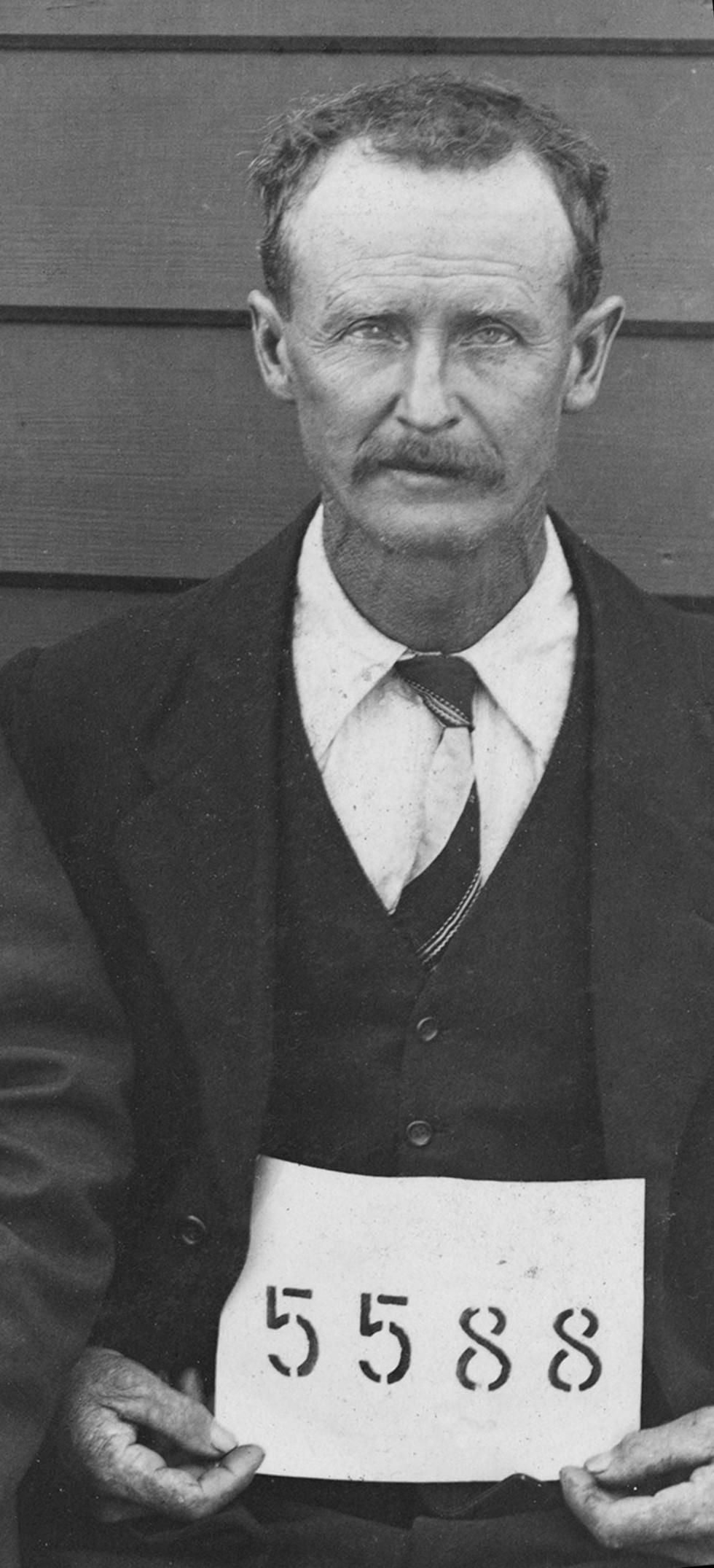


About this record
This photograph of Johan Wenke shows him as an internee (civilian prisoner) at Holsworthy Concentration Camp near Liverpool, on the outskirts of Sydney, in 1918. The number ‘5588’ he is holding was his registration number at the camp. Although born in Australia, Wenke was classified as an ‘alien’ (non-British subject) under the War Precautions Act 1914 because he had German heritage.
Educational value
- On 10 August 1914 – less than a week after the declaration of war – the Australian government issued a proclamation requiring Germans living in Australia to register at their nearest police station. This requirement was soon expanded to include Austrians and, by 1916, War Precautions (Alien Registration) Regulations required all aliens aged 15 and over to register.
- The War Precautions Act 1914, passed by the Australian parliament in October 1914, gave the federal government a range of powers to increase public safety and to defend the British Empire. This law allowed the government to intern citizens of enemy countries for the duration of the war. Not all enemy aliens were interned: some of those who registered just had their movement restricted and were required to report weekly to police.
- During the First World War, a total of 6890 people considered to be a risk to the community were interned in Australia. The vast majority were born in Germany. By the end of the war, nearly 800 Australian-born or naturalised citizens of German origin had also been interned.
- Johan Wenke was born in Australia and was the descendant of a local pioneer farming family from Walla Walla in southern New South Wales. After an intelligence report on German descendants living in the Riverina, Wenke was arrested in March 1918 and interned in Holsworthy Concentration Camp (also known as Liverpool Internment Camp) in western Sydney. At the time of his arrest he was serving as an elected member of the Culcairn Shire Council.
- Wenke was soon released after it was discovered that his son David had been seriously wounded serving with the Australian Imperial Force in France. Indeed, David Wenke had received a public welcome home only a week before his father’s arrest.
- Generally, no specific charges were laid against internees, but many carried the stigma of disloyalty long after the war ended. In 1920 Johan Wenke (and another internee, Herman Paech) both stood for re-election to Culcairn Shire Council. Local returned soldiers, supported by the central executive of the Returned Sailors’ and Soldiers’ Imperial League of Australia (the forerunner of today’s RSL), waged a campaign against their nomination and appealed to both the Prime Minister and the Premier of New South Wales. Faced with this strong opposition and threats of civil unrest, both men withdrew from the election.
Related themes
Need help with your research?
Learn how to interpret primary sources, use our collection and more.


